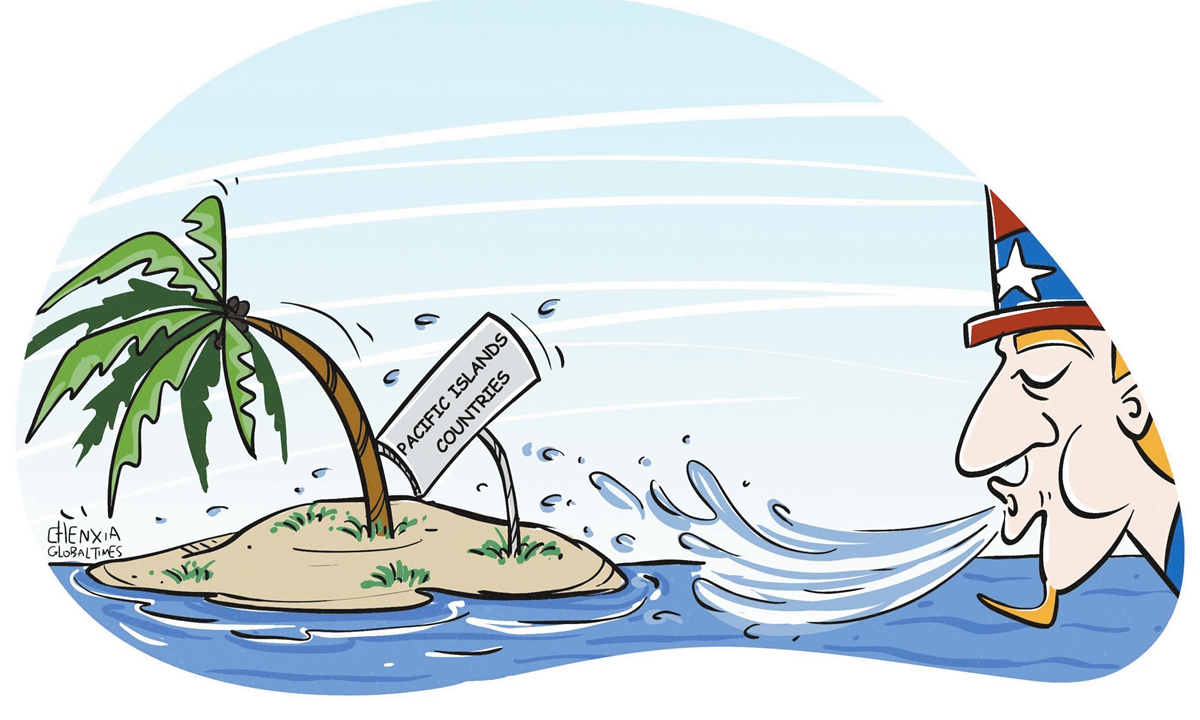
Pacific Island Countries Illustration: Chen Xia/GT
Australian officials are confident of locking in an ambitious Pacific-wide policing pact amid the Pacific Islands Forum Leaders Meeting this week, with the hope that it can help contain China's security presence in the region.
But with an impure motive, the pact only exposes Australia's attempt to intervene in regional countries' security decision-making, and such maneuvers prioritize US strategic blueprint while bringing limited, if any, benefits to Australia or Pacific Island Countries' (PIC) needs, observers said on Sunday.
According to the Sydney Morning Herald, the initiative would create a Pacific body similar to EUROPOL and AMERIPOL that combat crimes beyond national borders.
A former COVID-19 quarantine center at Pinkenba near Brisbane airport is expected to be transformed into a regional training facility when it is handed over to the Australian Federal Police.
Australian officials, who were not authorized to speak publicly, said they were confident the policing initiative would receive widespread support, despite the possibility of posturing from some Pacific leaders with close ties to China, the Sydney Morning Herald reported.
The pact, if implemented, will grant Australia effective veto power over any possible security pact between China and the PICs, according to the Australian report.
Chen Hong, executive director at the Asia Pacific Studies Center of East China Normal University, told the Global Times on Sunday that just as China is cooperating with the PICs, Australia talked about "external forces," but if it were the US or other allies, Australia would open the door wider to welcome their presence in the South Pacific.
Such an exclusive policing pact not only violates general principles in international relations, but also infringes on PICs' sovereignty to independently choose cooperation partners, Chen said.
Chen cited the police cooperation between China and the Solomon Islands, which not only protects the safety and property of the local Chinese community, but also ensures social order and economic development in the Solomon Islands.
Canberra has geopolitical competition rather than cooperation in mind when it drafted this pact, as this type of cooperation benefits neither PICs nor Australia's interests much, but rather serves the US' "Indo-Pacific Strategy," Chen stressed.




